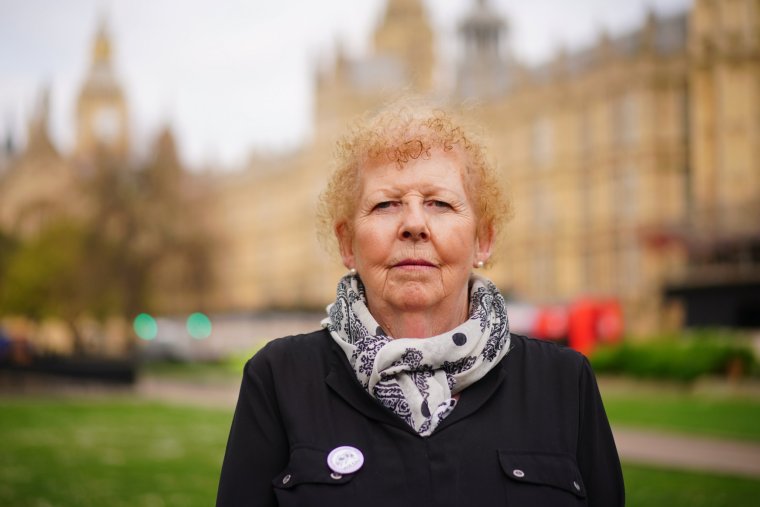Waspi women have been warned it is “highly unlikely” that compensation payments over changes to the state pension age will be included in Chancellor Rachel Reeves’s Budget.
However, pension experts told i it is still possible Labour will come up with a “narrow” hardship fund for the worst-affected women in the spring of 2025.
Waspi (Women Against State Pension Age Inequality) campaigners have been pushing Reeves to announce a compensation scheme for the 1950s-born women affected by the rise in the state pension age.
A damning report by the Parliamentary and Health Service Ombudsman (PHSO) in March found that the Department for Work and Pensions (DWP) was guilty of “maladministration” for failing to properly notify women of the changes.
An estimated 3.6 million Waspi women expected to get their state pension at 60 but had to wait another five or six years due to increases in the state pension age. Many claim they were not aware and made life-changing decisions because they believed they would get their pension at 60.
The watchdog recommended compensation and suggested payments of between £1,000 and £2,950, which would could put the bill at up to £10.5bn.
But Reeves is not expected to commit to Waspi compensation in Wednesday’s Budget, having previously said she had not “set aside” any money amid a huge “black hole” in the public finances.
Spending review 2025
Former pensions minister Sir Steve Webb said that if the Government was to accept the PHSO’s findings and come up with some money for Waspi women, it would probably happen in the spring Spending Review, which sets spending limits for different departments.
“It’s highly unlikely there will be something in the Budget – they will need more time,” said the former Liberal Democrat minister, who is now a partner at financial consultants LCP.
“It’s more likely at the spending review in spring, because you would be looking a longer-term spending for departments.
“I presume what they are trying to do is come up with something so they can say, ‘We haven’t completely ignored the ombudsman’ while spending as little as they can get away with.
Helen Morrissey, head of retirement analysis at Hargreaves Lansdown, said: “I would be very surprised to see something on compensation at the Budget.”
“The Government is not likely to open itself up to something on the scale suggested [in the ombudsman’s report]. You could be opening yourself up to eye-watering sums.”
Hardship fund
Some Waspi women have told i that they gave up jobs before they were aware of the pension age changes. Some had to sell their homes or continue working with ill-health to get by in their early sixties.
Sir Steve believes a serious option is a means-tested hardship scheme based on “narrow criteria”. Relatively few women would qualify, which would help avoid a huge bill of more than £10bn.
“Government lawyers will want something… that doesn’t open them up to the next 10 campaigns for compensation.
“What they might do is create a hardship scheme for people who can demonstrate not just that they didn’t know [the pension age was going up], but they took major decisions which made material differences to them, that have caused them hardship.”
Tim Middleton, director of policy at the Pensions Management Institute (PMI), said a hardship scheme “may be possible”.
“But it would have to be legally sound, so paying money to Waspi women isn’t an admission of culpability”.
Waspi campaigners say a hardship scheme is not be good enough.
“Compensation is about addressing a wrongdoing, an injustice,” said Angela Madden, chair of the Waspi campaign. “The idea of making a benefit payment to avoid that [admission of wrongdoing] seems crazy.”

A new review and letting MPs decide
Another option for Labour could be the bold decision to completely reject the PHSO findings, which would mean no compensation for Waspi women.
John Ralfe, an independent pensions consultant, thinks this is the most likely scenario. “The likelihood of Waspi compensation being announced in the Budget, or at any other time, are very, very close to zero.”
Alternatively, the Government could announce yet another review on the issue, and let independent experts decide whether compensation is merited and what kind of scheme should be set up.
Mr Middleton said this could buy Labour a few years until the public finances are in better shape. “If they are going to compensate, the money is going to have to be there for them to do it,” he said.
Ms Madden was scathing about the idea. “It’s time to act,” she said, adding: “Delaying again definitely wouldn’t restore trust in politics.”
Labour could also consider allowing Parliament to decide on the compensation issue – perhaps even giving a free vote to MPs.
Sir Steve thinks this route is unlikely. “You don’t want to hand it over to MPs, you would lose control of the process. You want to control something with financial consequences.”
Ms Madden is confident the compensation cause could be won by such a vote. “We have enough support. MPs know the strength feeling in their own constituencies.”
While she conceded that it is “unlikely” Waspi women will see compensation scheme at the Budget, campaigners are still holding a protest at Westminster on 30 October, to ensure the issue is not forgotten.
“We will impress on the Government that we’re not going away,” she added.
A DWP spokesperson said the department was still giving “serious consideration” to the ombudsman’s report. “We will continue to listen respectfully to the women involved, and ensure we take on board any lessons learnt.”



'President Musk' is flexing his muscles and revealing how weak Trump is